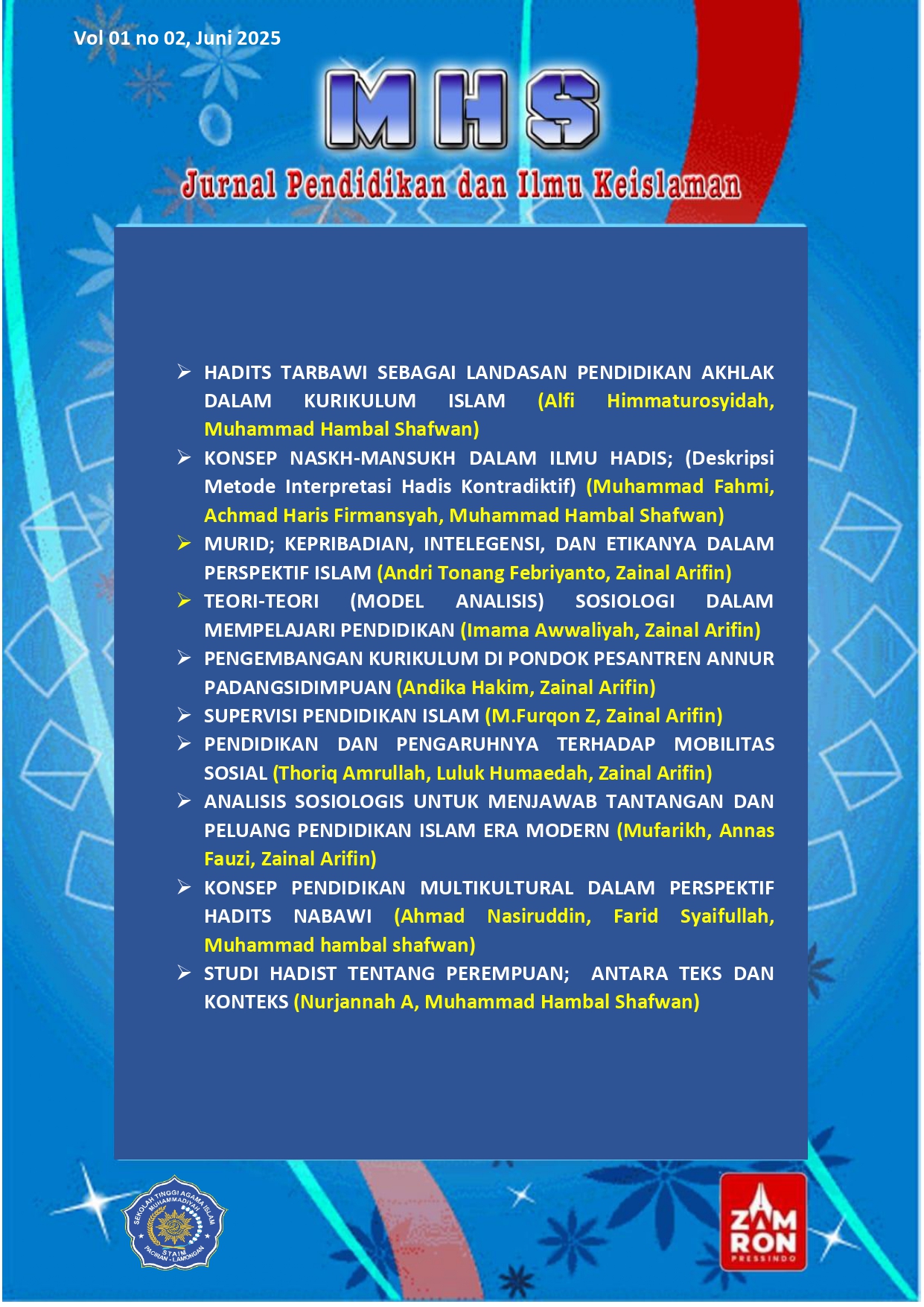TEORI-TEORI (MODEL ANALISIS) SOSIOLOGI DALAM MEMPELAJARI PENDIDIKAN
Abstrak
Pendidikan merupakan bagian integral dari struktur sosial yang membentuk kepribadian dan keterampilan individu serta mewariskan nilai-nilai budaya dari satu generasi ke generasi berikutnya. Beberapa teori sosiologi seperti struktural fungsional, teori konflik, dan interaksi simbolik, memberikan perspektif berbeda dalam memahami pendidikan. Penelitian kualitatif deskriptif analisis digunakan dalam ini untuk mengeksplorasi berbagai teori sosiologi yang mempengaruhi pendidikan. Hasil dari penelitian ini yaitu teori struktural fungsional tekanan keteraturan dan interkoneksi dalam masyarakat, sementara teori konflik menyoroti perbedaan kepentingan antar kelompok. Di sisi lain, teori interaksi simbolik menempatkan individu dan interaksinya sebagai fokus utama. Ketiga teori ini memberikan sudut pandang berbeda dalam memahami hubungan antara individu, pendidikan, dan struktur sosial.
Education is an integral part of the social structure that shapes the personality and skills of individuals and passes on cultural values from one generation to the next. Several sociological theories such as structural functional, conflict theory, and symbolic interaction, provide different perspectives in understanding education. Descriptive qualitative analysis research is used in this to explore various sociological theories that influence education. The results of this study are that the structural functional theory emphasizes order and interconnection in society, while conflict theory highlights differences in interests between groups. On the other hand, symbolic interaction theory places individuals and their interactions as the main focus. These three theories provide different perspectives in understanding the relationship between individuals, education, and social structures.











